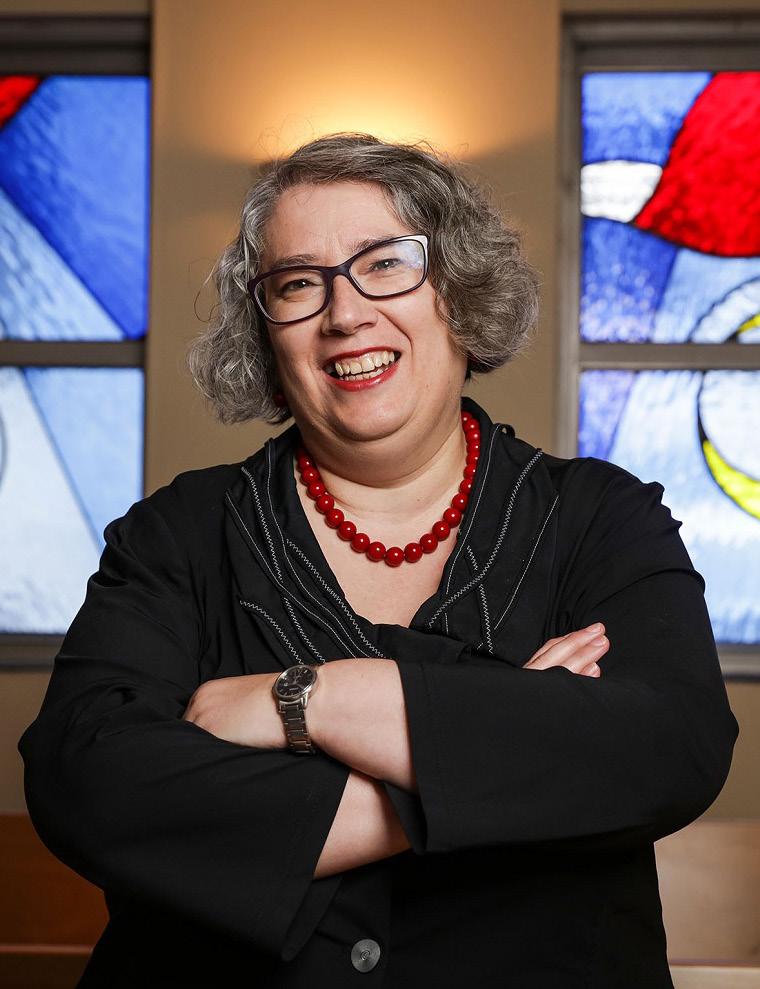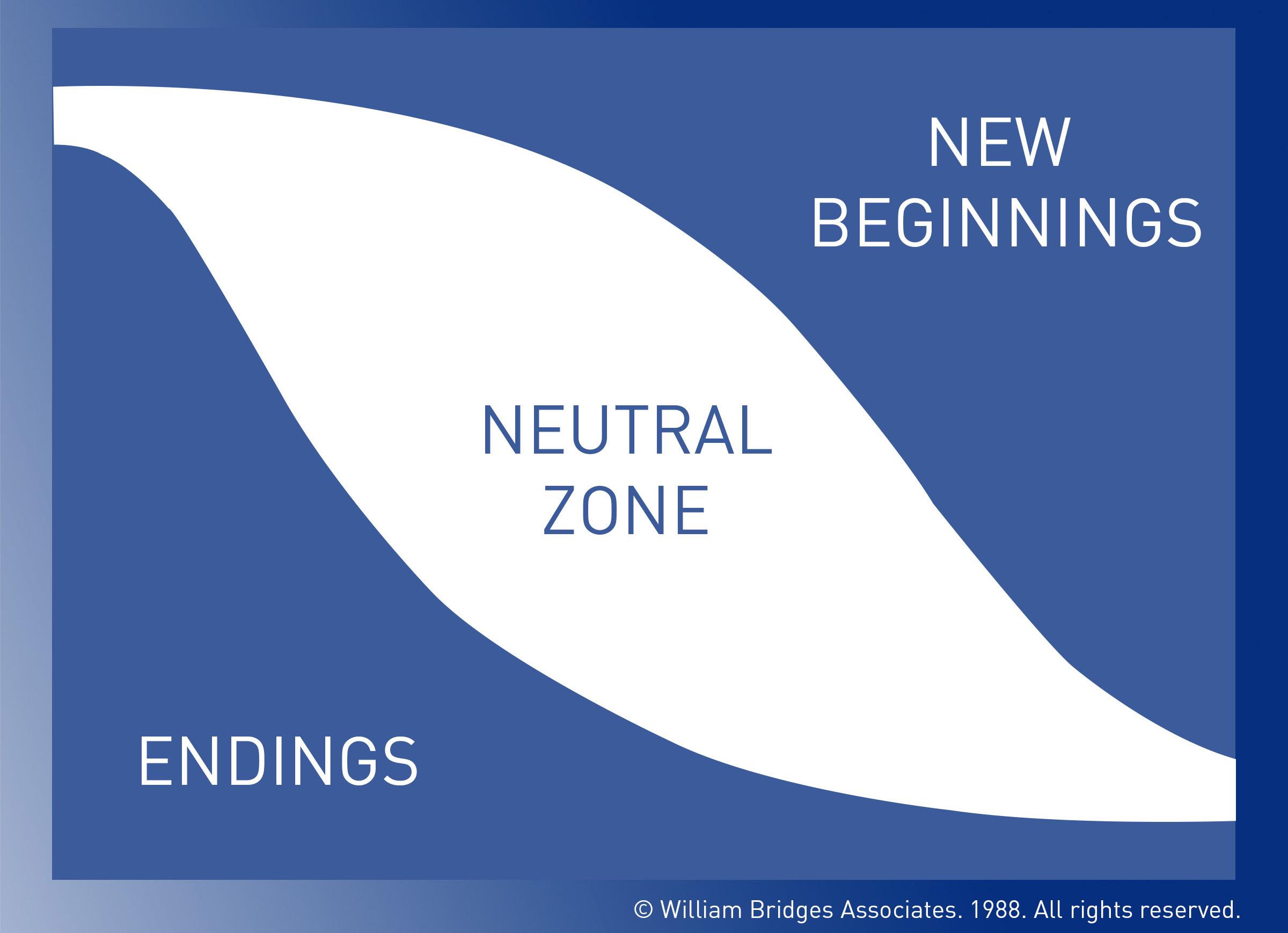
8 minute read
Renewal - a perspective
Rev. Sharon Hollis
President, Uniting Church Assembly When I think about renewal I think about the possible of new beginnings, new opportunities, new ways of being, new ways of understanding oneself and the communities one belongs to. I think about how we navigate change and find hope and new possibilities. I’m thinking about renewal as both something experienced by individuals and communities.
One of the paradoxes I have found about renewal in my own life and in the lives of the communities and people I’ve ministered with is that when renewal occurs it comes with an element of surprise, is experienced as gift yet rarely comes without a lot of work, struggle and effort and support.
I want to illustrate this with a couple of examples from my own life and ministry of renewal.
After my partner died I didn’t think I’d ever be happy again. In the depth of grief, I thought that might be all I would ever knew - emptiness, heart brokenness, sadness, despair. Even with the support of excellent friends and family I wasn’t sure I would ever know happiness or contentment again. So imagine my surprise when I was having dinner with friends one day and I realised I’d laughed with joy, at first it was just a moment, a brief time without grief. But over time I experienced more of these moments. I knew more times of joy, moments of happiness, relief from tears. Gradually I could see how it might be possible to go back to work, parent my daughters, be a friend, participate in wider family events, think about living in a new home, take a new placement, accept new responsibilities, feel alive and human again.
This renewal of my life didn’t just happen by accident although it is a gift of grace. Renewal came because of the hard work of grieving, through the rage, lament, and tears. Renewal came through the effort of counselling, through paying attention to my feelings not pushing them away. Renewal came through the faithful support of friends and family who were willing to journey with me in my pain, who didn’t give up on me, even when having me around wasn’t easy or fun. Renewal came through the presence of the spirit of God, often seen only in hindsight, known in community, through prayer and sustaining love.
Renewal offered the possibility of a more joyful, more purposeful life than I thought possible in the months after my partner’s death. My renewed life isn’t the life I imagined for myself before my partner died. It wasn’t the life I might have wished for. But a renewed life, renewed hope, and new beginnings have emerged. I am being renewed by God’s love and the goodness and support of people who love me and care for me.
When I went to my first placement, a congregation in the eastern suburbs of Melbourne they were very honest with me. We have enough money left for three years. You will likely be our last minister, our congregation will probably close at the end of your time with us. And they were right.
After trying very hard to connect with their community for years before I arrived, and continuing to do this while I was there, after taking part in conversations with neighbouring congregations about merging, after faithful worship for decades, praying together, studying scripture together, building community together this congregation did indeed close three years after I arrived as their last minister.
They faced their closure with courage and wisdom. They developed a set of principles. They wanted to move to a new community of faith together. They wanted to make sure there was something good for the few children in the congregation. They wanted to find a community of faith where they could grow and be nourished in their faith. They wanted a place they could continue to serve. They wanted their manse used for justice. They wanted to celebrate the life of their congregation well. They wanted to be allowed to be sad and hopeful.
This congregation worked through the process of closing. They closed and then they moved together to a new congregation, who welcomed them warmly and sensitively. At first, they all sat together, supporting each other in the new congregation. Over time they made new connections and new friendships and some months they were now sitting throughout the congregation, enjoying new ways to practice their faith, serve God, worship and belong. When we met together a year after closing they were full of joy at what this renewed life as members of this new to them congregation offered. Most of them had found a new role or way to serve and participate. They were liberated.
One of the ideas that I’ve found that help me make sense of the journey of renewal and the possibility of new beginnings is a theory about transitions developed by William Bridges1. Bridges talks about change as the external factors that occur to us, such as death or closing. Transition is the process of doing the spiritual and emotional work of the change so that renewal is possible.
Bridges says that this process of making transition through change has three phases- endings, neutral zone and new beginnings. These phases aren’t linear, they overlap, different people and communities move through the process at different paces.
For Bridges a person or community must accept as fully as they can the ending. This means not rushing through grief, not seeking false new starts that try to pretend that the ending hasn’t happened.
Then comes the neutral zone. It sounds passive but it’s not. It’s a time of not knowing, of waiting, of praying, of discerning. It’s a time to ask questions, to test, to explore, to heal. It’s a period of self-examination and resting. It’s both difficult and creative, painful and hopeful.
Then comes new beginnings. They arise from the work of the neutral zone. Like the new beginning, the renewal has roots in the events of the ending they are fresh and free to be new because the old has ended. It is new wine in new wine skins.
Bridges used this diagram as a way to visualise the process.

So in my life I had to do the hard work of finding a way to live in new ways after my partner’s death. I had to accept not just that his life had ended but that the life and future I had imagined and planned had also ended. In the neutral zone of intense grief, I needed to attend to the hard work of grieving, of counselling,
of making sense of what I believed about death and life, hope and lament, grace and mercy. The neutral zone is hard work and this hard work has to be done if new beginnings are to emerge. If I wasn’t willing to do this good, hard, holy work I think I might have rushed to try to soothe my grief rather than living in it and with it until it has done enough work that a new life emerges slowly as a gift of grace.
My first congregation had to accept that their own congregation was closing. They did this by planning for their closing and by celebrating its life. They didn’t begin to plan for the future until they came to the point of ending, of accepting that there was no future for the congregation. Then they entered the neutral zone of having no answers and barely any questions. They waited, they prayed and slowly they probed, explored, tested their principles, tested future options and finally found a way towards a new beginning. They settled on a congregation to join and gently gradually joined and joined in. A year later they were glad they had made the move and they were actively contributing in new ways to the life of their new community of faith.
The hard work of the neutral zone is sustained by practices of faith that both helps us take something from what is ending and open us up to the possibility of a new beginning. For me after the death of my partner it was the community of faith whose practices held me, whose songs soothed me, whose proclamation reminded me of the hope of the gospel and the goodness of God. I think it was similar things that held my first congregation through their transition from being a congregation to belong to a new community of faith.
The Assembly has begun the work of considering what a renewal of the of life the Uniting Church might involve as we face squarely our challenges, ponder possible ways forward and hope for newness of life. It is called Act2 and we want you to contribute to the project by providing your thoughts and insights to the challenges and opportunities we have identified. You can find more information on Act2 including a discussion paper and feedback form at The UCA Act2 Project - Uniting Church Australia (https://uniting.church/act2_introduction/).
This theory of transition is not a Christian one. I believe that for Christian communities and individual people of faith a theory such as this can help us understand the process of renewal and how we can to be active participants in God’s process to make all things new. It can prepare us for the hard work of being open to the Spirit, of discerning God’s guidance and embracing God’s new thing.
What faith gives in times when I’m longing and looking for renewal are the spiritual practices and gifts of discernment to know what to end, wisdom about how to look for the movement of the spirit in the neutral zone and the vision of God’s way to guide my discernment of what renewal in the way of the cross will be like. Ruminations 17








